- Home
- A. S. Byatt
The Virgin in the Garden Page 2
The Virgin in the Garden Read online
Page 2
Actor and actress recited a poem she, Frederica, had not known, A Song betweene the Queen’s Majestie and Englande.
Come over the born Bessy
Come over the born Bessy
Swete Bessey come over to me;
And I will thee take
And my deare Lady make
Before all other that ever I see …
I am thy lover faire
Hath chose thee to mine heir
And my name is merry Englonde …
Memory tugged. Come over the born, Bessy. Frederica got excited. When the performance was over she tugged in turn at Alexander’s sleeve.
“That poem, that’s Lear. Look, where he stands and glares. Wantest thou eyes at trial, madam? Come o’er the bourn, Bessy. That’s Edgar. And the fool: her boat hath a leak. And she dare not speak, why she cannot come over to thee. My footnotes always said that meant syphilis. Surely that was risky, surely that was sacrilege or something?”
“It was about the end of her reign, when they were afraid the kingdom would be divided, Lear. Decay of powers. And of merry Englonde.”
“She said, when she talked to the archivist in the Tower, she said, I am Richard II, know ye not that?”
“I know,” said Alexander. “I know.”
“So you do, it was in your play, I probably learned it from there.”
“Probably,” said Alexander, possessed by terrible sadness. He wished, he thought, that he had never written that play. To be here, now, with the Darnley Portrait, was like being in a room with a woman you had once been led to assault, unsuccessfully, with whom no other relation was now possible.
“If I had the chance to do that again now, I’d do it quite differently, quite.”
“You always could do it again.”
“Oh no.” Alexander had a strongly linear sense of time. Chances did not come round again, they went, and stayed, past. He had sometimes thought of more modern, more artificial ways of rendering that matter, the virgin and the garden, now and England, without undue sentiment or heavy irony. But he would not try.
“It was good the first time, though,” Frederica was saying. “In the first place. All the singing and dancing. Funny, the fifties. Everybody thinks of it as a kind of no-time, an unreal time, just now. But we were there, it was rather beautiful, the Play, and the Coronation and all that.”
“A false beginning,” said Alexander.
“All the beginning there was,” she said. “My beginning, anyway. That was what did happen.”
“I must go,” said Daniel. “I must go.”
They turned to him in distress. He hadn’t said anything, had he enjoyed it? What did he think?
Nothing, really, said Daniel. To tell the truth, he was so tired, he’d sunk into a kind of peaceful coma, he’d heard almost nothing, he was sorry. He must go now. He had to see someone.
Someone was a woman whose son had been damaged in a smash. He had been a beautiful boy, and still was, a walking unreal figure of a beautiful boy, a wax doll inhabited alternately by a screaming daemon and a primitive organism that ate and bulged and slept, amoeba-like. His father had been unable to bear it and had left. The woman had been a good teacher, and now was not, had had friends, and now did not, had had a pleasant body, and now did not. She was afraid, and angry, and exhausted and would not for a moment leave what was and was not her boy. She wanted Daniel to come with her to Court about the damages: the grounds she gave were that someone might laugh at her boy, and she would go berserk. Daniel had said he would come: it was tiring, waiting in court corridors for the case to be heard. He had come today to hear other voices than her repetitive desperate shrilling and the boy’s occasional snort. But he had not managed to listen. He shook his head, and repeated that he must go.
They walked companionably out together, the three of them. Daniel said with an effort, “I preferred your play”, and Alexander said, “No, no”, still brooding on the irreversibility of art and time. They cut through to Piccadilly Circus, and Eros poised over the hunched and lolling and weaving junkies. Daniel suddenly announced that he was going into the Underground, he had to get somewhere. Frederica said, “Stay and have tea” and Daniel began slowly to descend with heavy steps, into the warm and smelly dark. “Let’s have tea, in Fortnum’s, that would be amusing,” said Frederica to Alexander. He meant to say no, but said yes.
PART I: A FUGITIVE VIRTUE
1. That Far Field
In 1952 history took a grip on the world of Alexander Wedderburn’s imagination. When the King died Alexander’s play was in fact largely finished, although later he had perpetual difficulty in establishing, in other people’s minds, the true chronological order of his own choice of themes and the accident of death. His play was frequently misrepresented as a pageant, commissioned for the Festival which celebrated the handing-over of Long Royston Hall to the still insubstantial new North Yorkshire University. The Festival itself was certainly timed to coincide with the spontaneous outbursts of national cultural fervour in parks and gardens all over the country in celebration of the Coronation. If Alexander’s play had not existed, it would have been necessary to invent it. Fortunately, it was to hand.
In the beginning he had been innocently obsessed with the renovation of the language, and of verse drama in particular. This was in the air. There were Eliot, and Fry. As an undergraduate at Oxford Alexander had decided that the problem was Shakespeare, who had been in one sense so much too much that he had made it almost impossible to write good dramatic verse after him. Either the playwright was distractedly obsessed with innovation for its own sake, or he wrote watery imitation Shakespeare, involuntarily. It had come to Alexander that a thing to do might be to take a run, as it were, at Shakespeare, head on. To write a historical drama, like Shakespeare’s own, but in modern verse, and confront the time, the place, and the man. Later, for some private reasons and some aesthetic reasons, he had come to leave Shakespeare out and to concentrate on the Queen. He was aiming at a vigorous realism, and had great trouble with a natural warp in the work itself towards pastiche and parody. The writing took him several years, on and off, years of loving research, formal experiment, despair, visions. He was at the time Second English Master at Blesford Ride School, in the North Riding, and realised, almost involuntarily, tinkering with his verse whilst invigilating a biology examination, that the thing was finished, it had come to an end. He could do no more. He did not know what to do without the hope, the obsession, the glassy cage of singing rhythms and moving forms inside which he had walked about. He put the text of the play in a drawer, left it a month, during which the King died, and then took it to Matthew Crowe.
Partly because he had finished the play, he felt a great sense of loss and aimlessness when the King died. He took a group of Middle School boys to hear the Crier proclaim the accession on the steps of Calverley Minster. “The King is dead: long live the Queen.” And the trumpet sounded, thin and clear. The boys shuffled solemnly, expecting to feel something. This death marked a period to the first brief part of their existence, that must have seemed eternal: rationing, the end of a war, utility. Alexander remembered the King, prodding bomb rubble, on newsreels. A disembodied voice, on the radio, announcing war. Nervous and pastoral. He imagined a nation, attempting to imagine this known figure, dead alone in his bed, and failing in the attempt. That was what kings were for. His personal grief was both ludicrous and natural.
It was Matthew Crowe who gave Alexander’s play literally a local habitation, and a cultural and financial reality. Crowe owned and lived in Long Royston, architecturally a relation, further north, of Hardwick Hall, though without the spread of glass and the weight of towers: it was a large building made both for living in and for display, but with slightly more emphasis on the living. Alexander was already indebted to Crowe, a natural entrepreneur and patron of the arts. It was Crowe who had engineered a short run at the Arts Theatre for Alexander’s first play, The Buskers, of which Alexander was now slightly ashamed, sinc
e his new hopes of bold realism reinforced his belief that plays about plays and plays about actors were one of the signs of general debility in the theatre. It was Crowe who provided the grandest and liveliest part of Alexander’s social life, outside Blesford Ride. He was a strenuous believer in local culture, local loyalties, local talent, and, although he had had a brief career as a West End director as a young man, now spent his time putting on festivals and play-cycles in churches, music-halls, village barns. He was, and said he preferred to be, a huge fish in a reasonably small pond. He was very rich. He rarely went South.
When he had read the play, he invited Alexander to dinner, declared great enthusiasm for the work, and over coffee and brandy by his study fire, told Alexander some political secrets and made some revelations. Crowe enjoyed politics, secrets and revelations. He leaned forward into the firelight out of his high-enfolding leather chair and described briskly and gleefully to Alexander the machinations and inner workings of the powerful bodies who were labouring to devise the New University. There was the very strong Adult Education Movement, which had first proposed the University, the ladies’ teacher training college, St Hilda’s, the theological college, St Chad’s, which were to be incorporated into it, and Cambridge University, the original sponsor of the extension lectures for adults. Crowe spoke intimately to Alexander of the Bishop, the Minister, the man from the Treasury, the graspings and compromises, and Alexander, who had little political sense, failed frequently to admire the true brilliance of some concession or manoeuvre or piece of timing. Crowe spoke of the long business of syllabus-planning; the attempts to make this peculiarly local, peculiarly for adult students, or, like Keele, the only then existing exemplar, founded a few years earlier, to make the students acquire all kinds of knowledge before specialising, to make them become, as the Renaissance ideal had required, complete men. Crowe spoke of his own part in this: the tactical revelation, at the right moment of impasse, of his intention to make over Long Royston, house and grounds, on condition that he had a right to live in his own corner of it in perpetuity.
The point was, Alexander must see, that all this was most timely; the inauguration of an Appeal, the announcement of the Gift, the Royal Charter, in Coronation Year, all could coincide, and be celebrated, amongst other things, by a performance of Alexander’s wholly appropriate play in summer evenings on the terrace of Long Royston itself. It was a play ideally suited to raise the countryside – in the sense of providing work, cultural employ, for armies of local people. There must be a cast of thousands – with a bit of tinkering – and musicians, and scene-builders, and costume-designers and sewing-ladies – all the people of the locality. It was not a pageant, Alexander said. No, said Crowe, it was a work of art, which would with luck have the good fortune to have justice done to it. He would himself be in his element, setting it up. Alexander should see.
The speed of the setting-up left Alexander a little dazed. He was summoned shortly to meet the Festival Committee, again at Long Royston: this consisted of the Bishop’s Chaplain, the man from the Treasury, Miss Mott from the Extension courses, Councillor Barker of Calverley, Crowe, of course, and Benjamin Lodge, the director from London. Alexander’s play had further solidified and proliferated: everyone present had his or her own duplicated script. Everyone present congratulated Alexander on the brilliance and topicality of his work. Crowe presided benignly: the Committee discussed dates, costs, publicity, supporting events, possible casting, sanitary arrangements. Alexander was never sure at what point, or by whom, it had been formally decided that his play would be put on: he was faintly troubled by Lodge, who once or twice spoke of “this pageant” and said it would need cutting. Crowe, clever enough to notice these doubts, held back both Lodge and Alexander to have a drink, elicited compliments from Lodge for Alexander’s verse, and from Alexander for Lodge’s excellently stark production of the Wakefield plays, which he had seen, and had indeed greatly admired. Lodge was a heavy, taciturn man in a monstrous mustard-coloured sweater, whose black hair was thinning, and was compensated for by a huge, bushy-soft beard. Crowe himself, in his sixties, had a crimson cherub-face, something, still, of an unfinished boyish look. He had wide pale blue eyes, a little curled sensual mouth, and a tonsure of finely-floating silver hair. He was a little rounded by age, still this side of portly. Whilst Lodge and Alexander were still glowing, presumably, with fine malt whisky and a sense of achievement, Crowe whisked Alexander away, declaring that he would drive him home to Blesford Ride.
Crowe drove an elderly Bentley, rather fast. He took Alexander across country, between drystone walls and rough fields, the edges of the moor, down into Blesford Vale, up the long school drive, lined with limes. He stopped the car just outside the school’s red Gothic arch.
“You should be pleased with this day’s work. And with yourself.”
“I am. I am. I hope you are. I can never thank …”
“You’re worried by Ben, I can see. Don’t be. He won’t make a pageant out of it. For one thing, I shan’t let him, and for another, he’s no fool. Just likes to be sure he’s doing creative work of his own. Likes to slap your text about a bit, until he feels it’s got his mark on it. You noticed that, of course. But you can trust me to keep an eye. You can. And you must keep your own eye. Will they let you have time off this awful place?”
He cocked his head up at the clumsy, louring archway.
“My ancestor’s godawful Folly. How long d’you mean to stay in this place?”
“Oh I don’t know. I like teaching. I suppose I’d like to think of writing full-time.”
“Well, go and find yourself a first-rate school. With a first-rate Head of Department. That man’s remarkable, but he’s a horror.”
“Oh, I’m easy-going. And he’s a first-rate man in his way. We do very well.”
“You amaze me,” said Crowe. “And what will he say to this enterprise?”
“I dread to think. He’s not keen on verse drama.”
“Or on me,” said Crowe. “Or on me, I assure you. Or, it is said, on the University, at least as it’s projected at present.”
“I’ll talk to him.”
“Brave man.”
“Well, I must, mustn’t I?”
“I wouldn’t,” said Crowe. “I’d quit. But I know you won’t. Have a good talk.”
The Bentley swung away in a spurt of gravel. Alexander wandered, still dazed, into the school.
The school cloisters, across a lawn under the arch, were thick and red, with Perpendicular arches somehow made squat. They were peopled by rough neo-Gothic stone figures, impartially selected from some universal Pantheon: Apollo and Dionysos and Pallas Athene, Isis and Osiris, Baldur and Thor, horned Moses, Arthur of Britain, St Cuthbert, Amidha Buddha and William Shakespeare.
Blesford Ride School was public, progressive and non-discriminatory. It had been founded in 1880 by Matthew Crowe, the present Crowe’s great-grandfather, who had made a fortune in linsey-woolsey and was a distinguished amateur comparative mythologist. He had built the school largely to ensure that his six sons should be educated neither at home nor in any contact with believed Christianity. Agnosticism was laid down in the Founder’s Charter which expressly forbade the building of any “chapel, retreat, quiet Room or other apology for ecclesiastical institution”. The cloisters and Pantheon did not count, since they were Art. During this Crowe’s lifetime the school had flared briefly with pure eccentricity, which possibly explained why two of the six sons had become itinerant preachers and one a prison governor. Of the other three, one inherited the wool business, one taught classics in the school, and became an archivist, President of the Blesford Historical and Topographical Society. One died young. Matthew Crowe, who had been sent to Eton and Oxford, was descended from the archivist, whose eldest brother had died without issue.
Blesford Ride was never more than moderately successful. Geographically it was somewhat desolate, up in the Yorkshire Moors miles from anywhere except the minor Minster town of Calverley,
which was neither as civilised as York nor as grandly self-contained as Durham, and dwarfed by both. Historically, it had been tactless. Eccentric when conformity was a powerful force, the school had grown more conformist and cautious, owing to financial difficulty and milder leadership, at a time when its original oddity might have given it a certain cachet. Now it was recommended to parents who did not want their sons to have to join an Officers’ Training Corps; who were against fagging; who had been frightened in sensitive childhood by roasting boys’ flesh in Tom Brown’s Schooldays; who were not above gentle mockery of Flag and Empire; who lived locally. It was equally recommended to parents who disliked dirt, sandals, cigarettes, alcohol, sexual licence or vehement sexual instruction, do as you please, learn as you go, and intellectualism. It was inhabited largely by middle class children whose frugal and conscientious parents had hoped and believed they might pass the II+ and had felt unable, in the event, to expose them to the howling hordes in the local Secondary Modern. There were Founder’s Bursaries for non-ecclesiastical minority groups: Jews, epileptics, orphans, woollen-workers’ children, bright boys from overgrown families. The school was theoretically run by a Parliament of boys and teachers selected by a complex system of proportional representation devised by a recent headmaster. The staff were of three kinds: bright young men who came in search of academic and moral freedom, stayed briefly, and left for Dartington, Charterhouse or journalism; bright young men who came, somehow never went away, and grew imperceptibly older; and Bill Potter, who had been there for nearly twenty years. The school was a reasonably usual liberal school: all things to all men, middle of the road, minor.
Bill Potter was Alexander’s Head of Department. He was generally agreed to be a first-rate teacher, inspired, dogged and ferocious. He was respected by University Selection boards, and feared by the headmaster. Although he had been offered a House, he refused to do anything but teach, and lived still in the red-brick semi he had brought his wife to – one of an isolated line of small houses put up for married teachers at the edge of the furthest rugger field, the Far Field. This was called Masters’ Row. Alexander now set out to call on Bill Potter, not without misgiving.

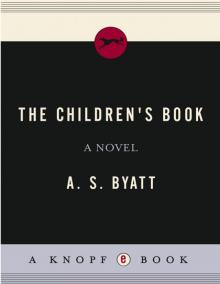 The Children's Book
The Children's Book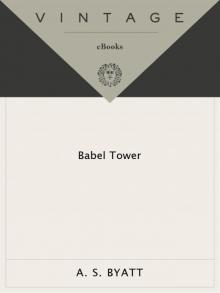 Babel Tower
Babel Tower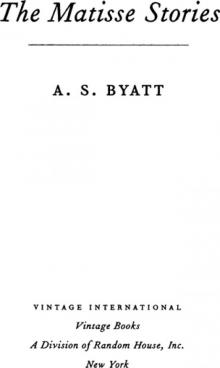 The Matisse Stories
The Matisse Stories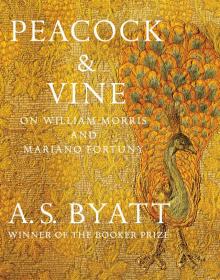 Peacock & Vine: On William Morris and Mariano Fortuny
Peacock & Vine: On William Morris and Mariano Fortuny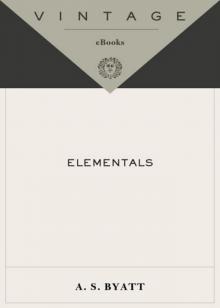 Elementals: Stories of Fire and Ice
Elementals: Stories of Fire and Ice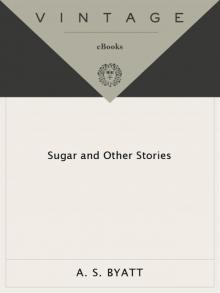 Sugar and Other Stories
Sugar and Other Stories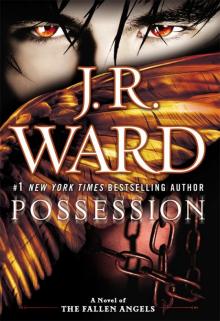 Possession
Possession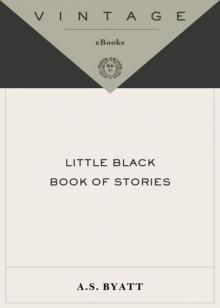 Little Black Book of Stories
Little Black Book of Stories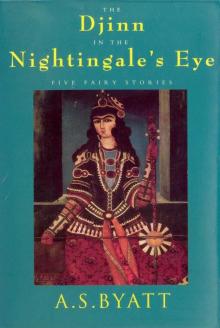 The Djinn in the Nightingale's Eye
The Djinn in the Nightingale's Eye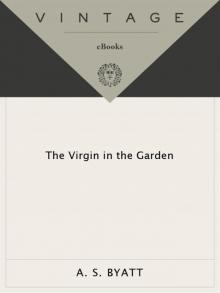 The Virgin in the Garden
The Virgin in the Garden The Game
The Game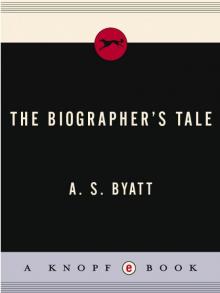 The Biographer's Tale
The Biographer's Tale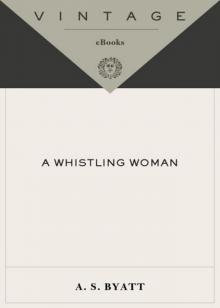 A Whistling Woman
A Whistling Woman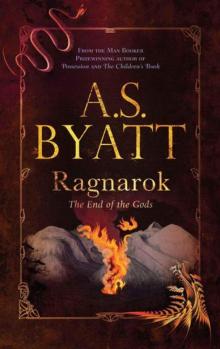 Ragnarok
Ragnarok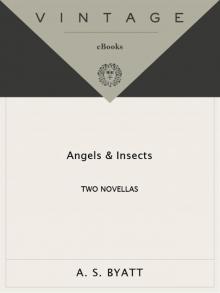 Angels & Insects: Two Novellas
Angels & Insects: Two Novellas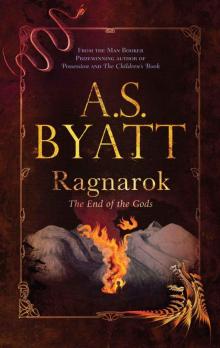 Ragnarok: the End of the Gods (Myths)
Ragnarok: the End of the Gods (Myths)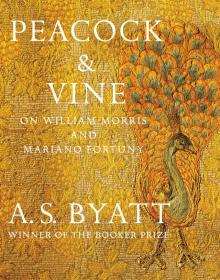 Peacock & Vine
Peacock & Vine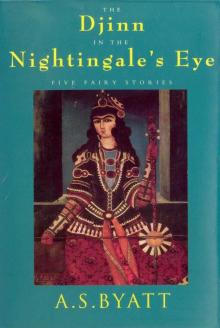 The Djinn in the Nightingale's Eye (Vintage International)
The Djinn in the Nightingale's Eye (Vintage International)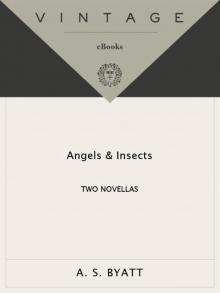 Angels and Insects
Angels and Insects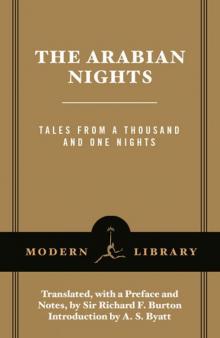 The Arabian Nights: Tales from a Thousand and One Nights (Modern Library Classics)
The Arabian Nights: Tales from a Thousand and One Nights (Modern Library Classics)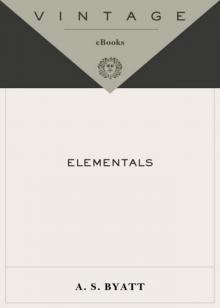 Elementals
Elementals